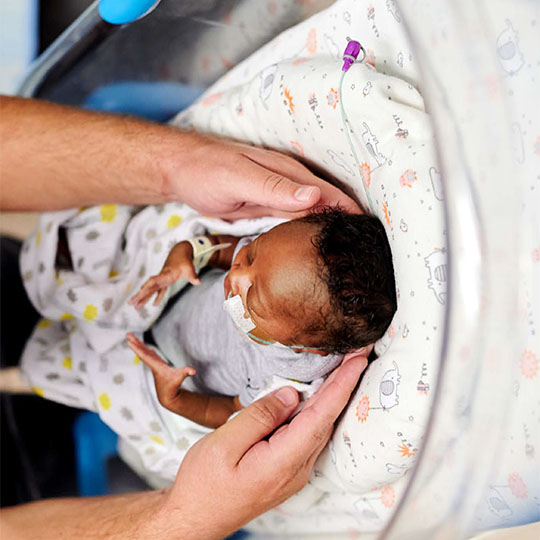Dr Moore has a particular interest in neonatology and provides this service as part of his portfolio. Neonatology is a subspecialty of paediatric care that involves the medical care of newborn infants, especially those that are premature or ill. It is a hospital-based speciality that generally takes place in neonatal intensive care units. The final weeks of pregnancy are important for healthy weight gain and the development of essential organs such as the brain, heart, stomach, lungs, and skin. Specialized equipment is used to treat babies, and a premature baby may need special medications, to be incubated, or fed through a tube. Dr Moore is trained to handle cases that are complex and high-risk.

Dr Moore provides the following services:
- If your newborn is premature or has a severe injury, illness, or a birth defect, Dr Moore may assist at the time of delivery and in the subsequent care and supervision of your newborn in the intensive care unit. If a problem is found before your baby is born, Dr Moore may consult with your obstetrician with regards to your baby’s care during pregnancy.
- The diagnosis and treatment of newborns that have conditions such as infections, birth defects and breathing disorders.
- The coordination of consultation and care with other specialists and healthcare professionals
- The medical management of premature newborns and babies that are critically ill, or in need of surgery, including the stabilization and treatment of newborns with any life-threatening medical problems.
- The medical care of premature newborns and babies that are critically ill, or require surgery. This includes the stabilization and treatment of newborns with any life-threatening medical issues.
- Ensuring that critically ill newborns receive proper nutrition for growth and healing.
- Short-term follow-up care on an outpatient basis.
- Dr Moore is available to counsel and educate parents about their newborn, including how to care for them and what to expect.
All the risk factors and causes for premature birth are not known, but some of them can include: infections, age, an abnormal uterus, cervix, or, and improper prenatal care - such as poor nutrition, drinking or smoking during pregnancy. A pregnant woman with heart disease, diabetes, kidney disease or high blood pressure is more likely to have a premature birth. Women having multiples, like twins or triplets, are often also at a higher risk.

